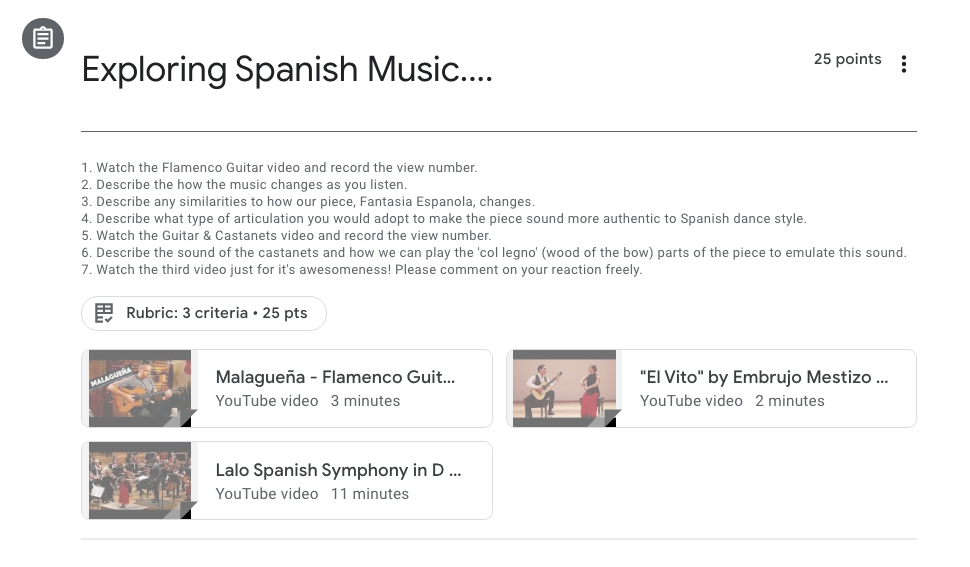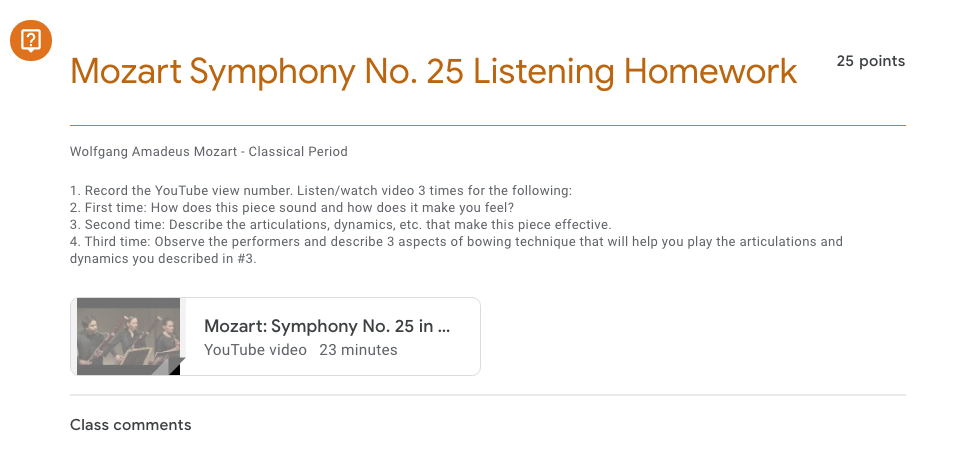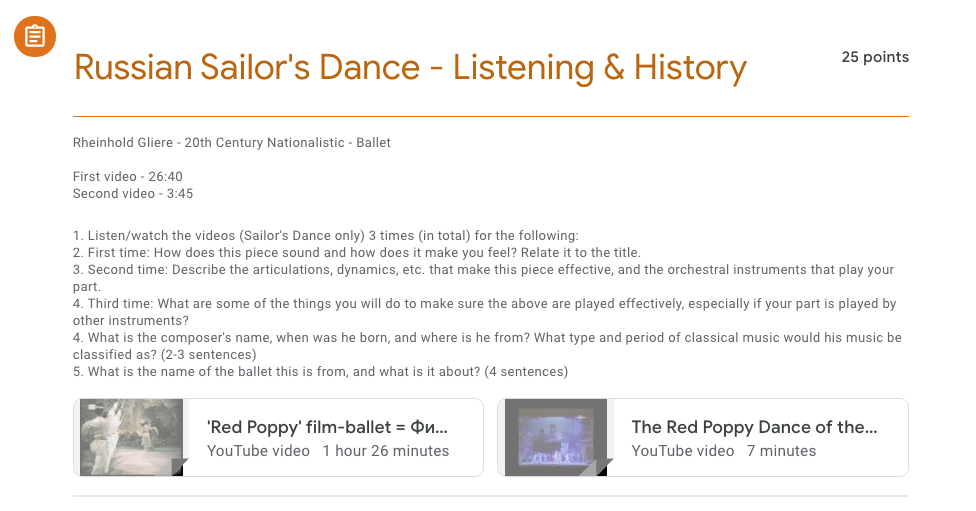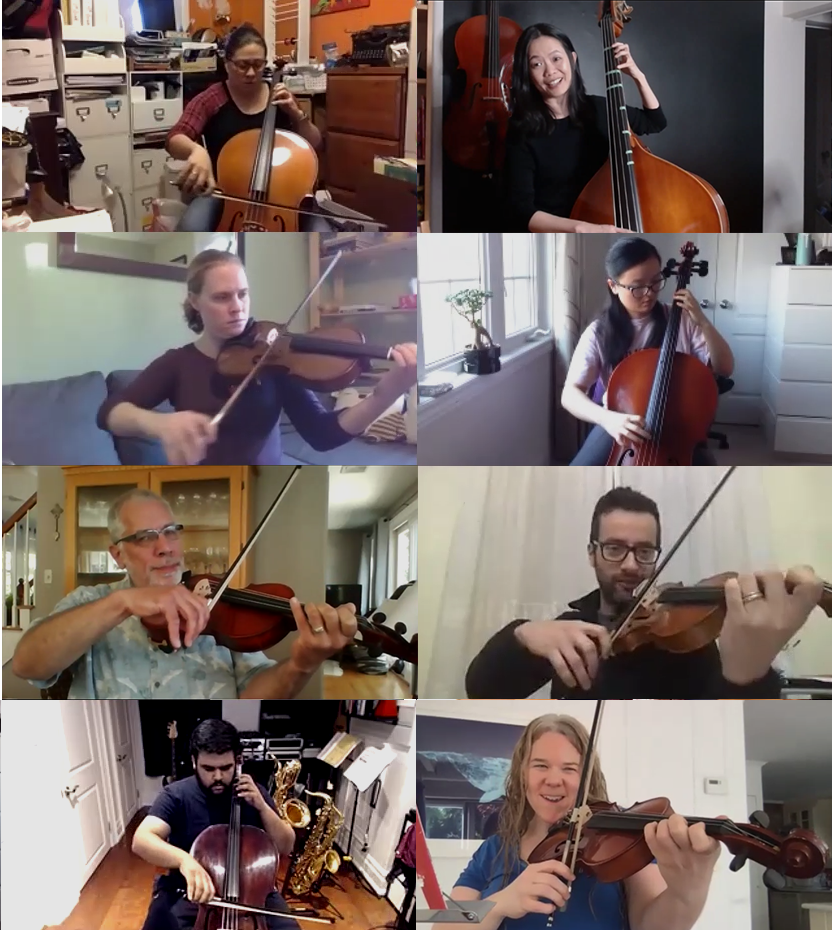I have two pet peeves when it comes to listening assignments – wishy-washy journal-type listening assignments and even worse, listening assignments that are based on ‘the elements of music’. So today’s post is my attempt at preventing an onslaught of assignments like these in the face of the current remote learning explosion.
Now, you might be getting all in a huff right now, because assignments like these are important, but hear me out. I used to create these kinds of assignments regularly. But eventually, I found them a complete waste of time – and so did the students.
Typical assignments take the life out of the music….
Why is this so? First, I found that most students perceive journal-type listening assignments as a waste of their time, and many others don’t do well with assignments with open-ended questions. And second, because analysing music according to the elements of music is like… so lame! Students have a radar for assignments that feel contrived, and asking a student to fill out an assignment analysing a piece by the elements of music just… well… takes the life out of it! Not only that, it makes analysing music look like a chore, which it shouldn’t be. Analysing music should be enjoyable!
What I do now….
So, let me share with you how I now design listening assignments that result in answers that not only often surprise me by their quality, they directly contribute to the improvement of student technique and musicianship in the classroom!
I have also found that students who normally would have nothing to say in a journal-type assignment will have lots to say when questions are more concrete and relevant to them – sometimes their writing even blossoms! As well, when you design your questions carefully, you can naturally cause the student to notice and talk about the elements of music without letting on that they are doing so.
Most importantly, when I structure my questions in the way I am showing you below, students relate to the music more, spontaneously express the fact that they enjoy the music more, and they take more ownership of the piece! That is something I couldn’t get a typical listening assignment to do, even though that was the outcome I intended.
Here’s my formula for creating a quality online listening assignment
1. Pick a piece that they are performing.
First, pick a video of one of the pieces the students have been playing. It is important that you choose a quality performance that shows musicians playing (or singing), up close, so students can observe them. If there is no video like that, then don’t worry. You can pick a different video for step #4. Make sure the clip is fairly short, 3-4 minutes is a good length because they will be playing the video 3 times.
2. Ask them to watch the video and give their impression of the piece.
This is where I satisfy the need for a reflective question – but only in one question. In this question, I want to elicit the student’s feelings about the piece. I want them to connect to it. And I want them to notice how the piece evolves. I use this question to set the tone for the rest of the assignment.
3. Ask them to watch it a second time and comment on what the musicians do to make the performance successful.
Next, I ask them to watch the performance again, and notice what makes the performance effective. This often elicits answers about dynamics, articulation, and many other things that they did not notice the first time they listened. I might direct their attention to specific things to look for in this question.
4. Ask them to watch it a third time specifically to observe technique and comment on 3 ways they can improve their own performance.
Note: if there isn’t a video of live musicians playing the piece I want, this is where I find another performance that is similar instead to use for this question.
Finally, this question sums up the main purpose for watching the video in the first place – to improve one’s own playing!
Videos to me are gold. We have this amazing ability for students to watch professionals from all over the world perform. If we are going to give assignments where they get to watch professionals perform, then they should use it as an opportunity to learn how to perform like professionals.
Since I started drawing the students’ attention to specifically observing how performance and playing technique translates into an effective musical performance, they started to notice so much, AND they start noticing it in themselves and each other in the classroom. This in turn has led to great lessons in class where they have taken what they learned and used it to give musical direction to the class – instead of me! That has been so exciting!
Other Tips:
- Indicate how many sentences you want per question, or you’ll end up reading novels! I usually go with 3-4 sentences.
- Have them record the view number on the video as verification that they watched it.
- Design your questions around what you want them to learn from the video, challenges you are having in class, a new skill you want them to learn, etc.
So, those are my four simple steps to an effective listening assignment. You can see three samples of assignments I have given below to spark your own ideas.
Finally, I know that there is a good chance that the students won’t be returning to class, much less performing. But I believe there is immense value in getting them to continue thinking about the music they have been working on anyway, and to get them to continue thinking like performers. Those who have instruments at home can put what they learn to practice, and those that don’t at least have the concepts for when they do. It also changes student mindsets towards watching to learn, and primes them to be more observant musicians going forward.
Let me know how it works for you!
This example was pretty straight-forward:
I added a bit of history to this one…. Love the excitement of this piece!
For this one, I wanted them to get the feel of Spanish music in order to perform Fantasia Espanola by Soon Hee Newbold.





Justin Wong
This is really helpful, just what I was looking for! Great tips.
SmartMusicTeacher
Thanks! I wasn’t sure if it would resonate with people, but it seems to be. Glad I could help!